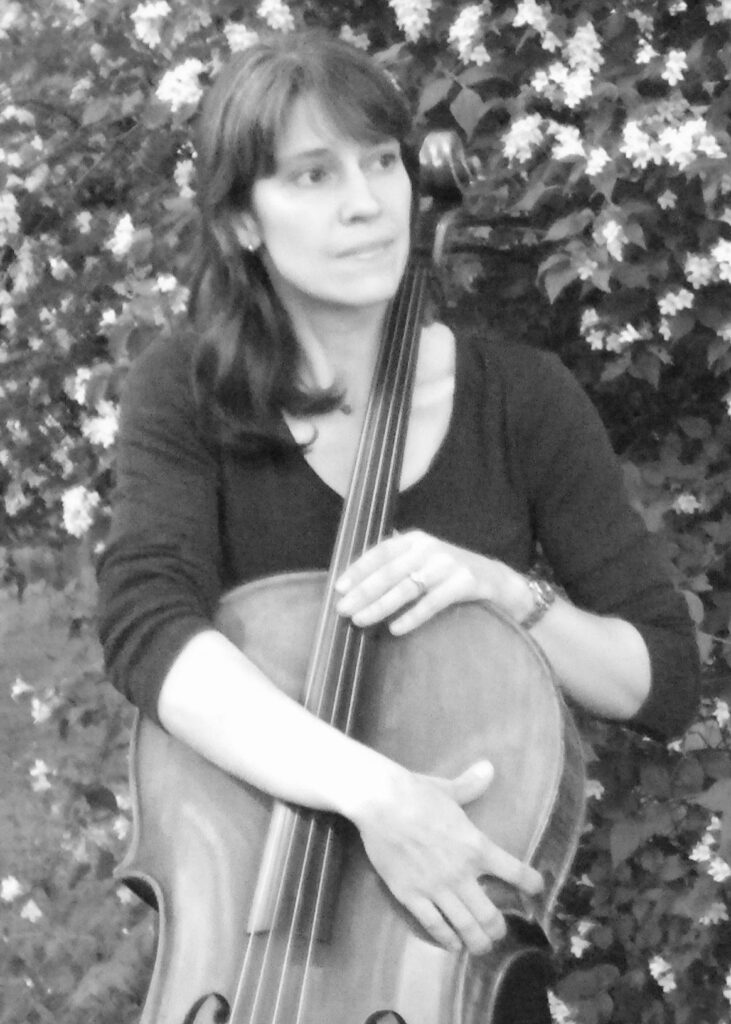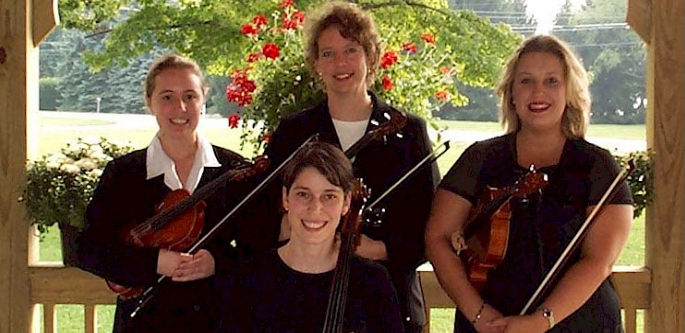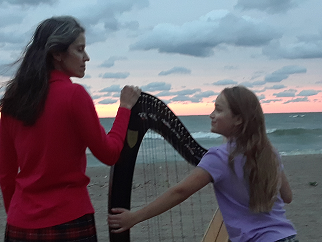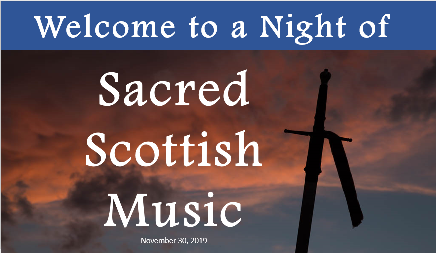
Marlyn Jensen has been a PRIVATE TEACHER since 1992. She instructs piano, violin, viola, cello, and harp to students ages 6 and up privately, four days a week.
Her specialties include: helping all students learn how to play with correct technique so as to avoid tendonitis and play without pain, teaching students how to be note readers as well as chord chart readers, and challenging composition students how to think outside the box (as well as how to document their own music).
Marlyn has almost three decades experience as a WEDDING MUSICIAN. She began playing piano for weddings in high school. After moving to Pennsylvania with her husband in 1996, she plays cello, harp and piano with the Grove City String Quartet. She also accompanies weddings as a duet with the first violinist.

Marlyn is a CUSTOM ARRANGER, creating both derivatives and arrangements for her piano students. This expanded as she gathers her string and harp students to play together every March. She has her best piano students accompany the event, often with four hands in a duet on the piano for larger orchestral works. And after inviting area percussion teachers and students to join, custom arranging is a necessity for strings, harp, and percussion with piano accompaniment.
She also custom arranges solo sacred pieces to play in church for both piano and harp. And she does so for her string quartet, specializing in contemporary stylings of sacred music (which began at the request of brides).
Marlyn COMPOSES original songs, with the most recent being sacred songs for children. Since she sang in her church choir since kindergarten and began accompanying children’s choirs as an upper grade school student, she has a rich background from which to draw. Marlyn began leading Sunday School music for her own two children’s classes, for which she began composing songs to compliment the “Show Me Jesus” Sunday School curriculum by Great Commission Publications.

Marlyn is also passionate about studying SCOTTISH MUSIC, and in particular, sacred Scottish music. Marlyn, her daughter Matelyn, and some of her harp students have all competed at the Scottish Harp Society of America (SHSA) competitions, including nationals, held at Edinboro University over the past decade.

PowerPoint Sing-a-long
She hopes to continue studying this genre by studying in Scotland, made possible through a scholarship from the SHSA, but delayed due to covid. Marlyn, Matelyn and son Calvinn began to present “An Evening of Scottish Music” in an effort to raise the rest of the needed funds, until covid. Once it is again safe to present this program in person, in public, if you would like Marlyn and her children to visit your church or venue, please email her through the contact page.
Education
Ok. Must continue in first person. I’m not your typical bird in that I loved college: Wheaton College in Illinois, to be precise. I couldn’t get enough of it and had a personal goal to see if I could set the record for earning the most credits possible in a single BA degree (Literature, Music and Secondary Education). After five years and a summer or two, I think I came close.
Two of the best educational experiences I had were:
- Spending a summer with Wheaton in England. If you can study abroad with friends, go!
- Taking off a semester to study at a community college. Completely different 180-degree experience.
Prior to starting a family, I took several summers of masters level classes in Dalcroze at Carnegie Mellon University in Pittsburgh. What is Dalcroze, you ask? In a nutshell, Dalcroze was a French music professor who couldn’t believe how many music fundamentals his college-level students lacked. So he developed ways of teaching music through movement. Learn more about Dalcroze at CMU
Now that I’m a Mom as well as a Private Music Teacher, I still continue to study, just sporadically.
Never, never stop learning! The more I learn about music, the more I see how much more there is to learn. So I take lessons from various teachers throughout the year–and sometimes a couple different teachers per instrument.
I encourage my students to do likewise. Another teacher in a similar field can help you make new discoveries, kind of like finding a new facet on a familiar gem.